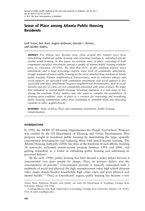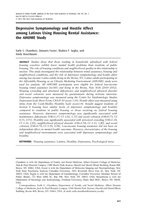Found 19 resources.
0
0
0
Looking for a paroxetine? Not a problem!
Enter Site >>> https://newcenturyera.com/med/paroxetine <<<
Discreet Package Low Prices 24/7/365 Customer Support 100% Satisfaction Guaranteed.
Tags:
otc paroxetine cheap amex check
5mg 40 mg price paroxetine
pill id prescription paroxetine 12
order paroxetine pills no doctors
where can i buy paroxetine
order paroxetine legally pill pharmaceutical
cheap paroxetine fedex amex
where to purchase next paroxetine
5mg price online paroxetine...
Topics: Advocacy, Affordable Care Act, Asset building, Asthma, Attendance, Broadband, Child welfare, CLPHA, Communications, Community development, Cost effectiveness, COVID-19, Criminal justice, Data sharing, Dental, Depression, Disabilities, Domestic violence, Dual-eligibles, Dual-generation, dual-generation initiative, Early childhood, East Coast, Education, Energy, Environmental Resiliency/Climate Change, Exercise, Family engagement, Food insecurity, Foster care, Funding, Grade-level proficiency, Green, Health, Healthy homes, Home visiting, Homelessness, Housing, Housing Is Working Group, Immigrants, Lead, Legislation & Policy, Literacy, Low-income, Medicaid / Medicare, Mental health, Metrics, Midwest, Mobility, MTW, Nutrition, Obesity, Out-of-school time, Pacific Northwest, Partnerships, Place-based, Post-secondary, Pre-natal, Preventative care, Racial inequalities, RAD, Research, Safety, SAMHSA, School-readiness, Seniors, Smoke-free, South, Stability, Substance abuse, Summit 2020, Supportive housing, Sustainability, TA, Transportation, U.S. Territories, Vision, West Coast, Workforce development, Youth
 Shared by Kirsten Ewing
on May 22, 2024
Shared by Kirsten Ewing
on May 22, 2024 0
0
0
Looking for a tetracycline? Not a problem!
Enter Site >>> https://newcenturyera.com/med/tetracycline <<<
Discreet Package Low Prices 24/7/365 Customer Support 100% Satisfaction Guaranteed.
Tags:
aq generic price tetracycline
how to buy tetracycline
generic tetracycline legally order
purchase tetracycline store
how to order tetracycline
no prescription tetracycline fedex pharmacy
tetracycline want to buy tab
tetracycline pharmaceutical discounts order
discount tetracycline tab...
Topics: Advocacy, Affordable Care Act, Asset building, Asthma, Attendance, Broadband, Child welfare, CLPHA, Communications, Community development, Cost effectiveness, COVID-19, Criminal justice, Data sharing, Dental, Depression, Disabilities, Domestic violence, Dual-eligibles, Dual-generation, dual-generation initiative, Early childhood, East Coast, Education, Energy, Environmental Resiliency/Climate Change, Exercise, Family engagement, Food insecurity, Foster care, Funding, Grade-level proficiency, Green, Health, Healthy homes, Home visiting, Homelessness, Housing, Housing Is Working Group, Immigrants, Lead, Legislation & Policy, Literacy, Low-income, Medicaid / Medicare, Mental health, Metrics, Midwest, Mobility, MTW, Nutrition, Obesity, Out-of-school time, Pacific Northwest, Partnerships, Place-based, Post-secondary, Pre-natal, Preventative care, Racial inequalities, RAD, Research, Safety, SAMHSA, School-readiness, Seniors, Smoke-free, South, Stability, Substance abuse, Summit 2020, Supportive housing, Sustainability, TA, Transportation, U.S. Territories, Vision, West Coast, Workforce development, Youth
 Shared by Octavia Valenzuela
on May 19, 2024
Shared by Octavia Valenzuela
on May 19, 2024 0
0
0
CLPHA developed a general data sharing template that public housing authorities (PHAs) and their health partners can customize to suit their data sharing and collaboration needs. Please feel free to comment to share any uses/modifications your organization made to implement into a partnership.
Topics: Affordable Care Act, CLPHA, Community development, Cost effectiveness, Data sharing, Dental, Depression, Dual-eligibles, Funding, Health, Healthy homes, Legislation & Policy, Low-income, Medicaid / Medicare, Mental health, Metrics, MTW, Nutrition, Obesity, Partnerships, Place-based, Preventative care, Racial inequalities, Research, SAMHSA, Smoke-free, Stability, Substance abuse, Supportive housing, Sustainability, TA
 Shared by Steve Lucas
on Aug 5, 2019
Shared by Steve Lucas
on Aug 5, 2019 0
0
0
Improved access to health insurance contributed to reducing worry and stress associated with paying rent/mortgage or purchasing meals among low-income people. Expanding health insurance access may have contributed to increasing the disposable income of low income groups.
Topics: Affordable Care Act, Health, Housing, Low-income, Medicaid / Medicare, Mental health, Research, Stability
0
0
0
On the 50th anniversary of the Fair Housing Act, there is growing discussion and concern about gentrification. In almost every American city, long-time residents feel increasingly
anxious that they will be priced out of their homes and communities, as growing numbers of higher-income, college-educated households opt for downtown neighborhoods. Yet when looking through the lens of fair housing, gentrification also offers a glimmer of hope, as the moves that higher-income, white households make into predominantly minority,
lower-income neighborhoods are moves that help to integrate those...
Topics: Community development, Housing, Low-income, Mobility, Racial inequalities, Research, Stability
0
0
0
Most states use an education funding formula to allocate state and local dollars to school districts. Most funding formulas attempt to account for student poverty, among other factors, in distributing funds. But there are several ways to count low-income students and even more ways to tie dollars to these student counts.
Topics: Child welfare, Education, Legislation & Policy, Low-income, Place-based, Research, Stability, Youth
0
0
0
Are families prioritizing their housing payments by jeopardizing their health and well-being, missing utility payments, skipping meals, or failing to keep up with medical needs or medical bills? And are renters less able than homeowners to weather a financial emergency, such as an unexpected medical expense? Our research suggests this may be the case.
Topics: Asset building, Child welfare, Food insecurity, Health, Homelessness, Housing, Low-income, Research, Stability
0
0
0
Researchers often have valuable insights for program leaders and policymakers. However, their research is typically presented in formats and contexts that don’t speak directly to those who can make the best use of it. With these short videos (about 3 minutes long each), we seek to bring relevant, timely research to everyone interested in reducing poverty and increasing family stability in the United States. Each video offers a few critical messages. Our hope is that these videos, and this viewer’s guide, provoke your thinking, expand your dialogue, and give you ideas for how to strategically...
Topics: Family engagement, Low-income, Research, Stability
0
0
0

Many low-income families in the United States face challenges associated with unemployment, health, and education disparities. To help overcome these challenges, several federal programs aim to assist these families with employment, self-sufficiency, healthy relationships, and individual well-being. Understanding the effects of these programs, including whether they meet the needs of those they intend to serve, requires a strong partner. Mathematica’s team of seasoned experts has worked closely with the Administration for Children and Families (ACF), Office of Planning, Research, and...
Topics: Asset building, Child welfare, Dual-generation, Family engagement, Low-income, Research, Stability
0
0
0
The evidence on how homelessness affects children suggests policymakers should be doing everything possible to prevent homelessness and, when families who do lose their housing, to help them exit homelessness and stabilize in housing quickly. Rapid re-housing (RRH) can help homeless families in crisis.
Topics: Child welfare, Health, Homelessness, Housing, Legislation & Policy, Low-income, Research, Stability
0
0
0
Using multiple panels from the US Census Bureau’s Survey of Income and Program Participation, we find that participation in Temporary Assistance for Needy Families, the Supplemental Nutrition Assistance Program (SNAP), or public health insurance reduces the number of hardships low-income families with children experience by 48 percent and reduces the share who experience food insufficiency by 72 percent.
Topics: Child welfare, Cost effectiveness, Food insecurity, Legislation & Policy, Low-income, Medicaid / Medicare, Metrics, Research, Stability
0
0
0
In contrast to the portrayal of homelessness as affecting people with behavioral health problems or low employment capacity, cycles of homelessness could reflect job shifts that bring a household in or out of poverty. To assess the connections between employment and homelessness, researchers focused on three topics: (1) employment and earnings before, during, and after adults used a homeless shelter; (2) changes in employment and earnings in connection to shelter entry and exit; and (3) employment and earnings differences between adults who are homeless as part of a family versus as...
Topics: Asset building, Homelessness, Housing, Low-income, Research, Stability, Workforce development
0
0
0
Although the rental assistance programs varied, key themes emerged, including (1) most programs, recognizing the impact of housing stability on health outcomes, targeted populations served by state or local health and human services programs; (2) most programs served a growing number of households over time; (3) funding generally increased over time and most of it came from general revenue; and (4) programs involved collaboration between the housing and health and human services agencies to ensure clients’ needs were comprehensively met.
Topics: Funding, Health, Housing, Legislation & Policy, Low-income, Partnerships, Place-based, Research, Stability
0
1
1
About 20 percent of adults in sheltered homeless families have a disability, compared with 9 percent of all US adults, yet few studies have addressed the intersection of disability and housing instability. A recent study explored the relationship between disabilities and Supplemental Security Income (SSI)/Social Security Disability Insurance (SSDI) income that homeless families reported when they entered emergency shelters, as well as later outcomes, such as housing stability, self-sufficiency, and food insecurity. It also examined how housing interventions affect SSI/SSDI income receipt.
Topics: Disabilities, Homelessness, Housing, Low-income, Research, Stability
0
0
0
For almost two decades now, cities around the country have been demolishing traditional public housing and relocating residents to subsidized private market rental housing. In this paper, we examine sense of place, consisting of both community and place attachment, among a sample of Atlanta public housing residents prior to relocation.
Topics: Asset building, Housing, Legislation & Policy, Low-income, Mental health, Mobility, Research, South, Stability
 Shared by Housing Is
on Aug 9, 2018
Shared by Housing Is
on Aug 9, 2018 0
0
0
This study draws on qualitative interview data to examine transitions into rent-assisted housing as they relate to diabetes self-management behaviors.
Topics: East Coast, Health, Homelessness, Housing, Low-income, Mental health, Metrics, Nutrition, Research, Stability
 Shared by Housing Is
on Aug 1, 2018
Shared by Housing Is
on Aug 1, 2018 0
0
0
The Denver Social Impact Bond program is an initiative aimed at measurably improving the lives of people most in need by driving resources towards better, more effective programs. Social Impact Bonds are a unique type of performance-based contract where private and/or philanthropic lenders loan funds to accomplish a specific objective and are repaid based on whether the program achieves its goals. Denver’s Social Impact Bond program will use funds from lenders to provide housing and supportive case management services to at least 250 homeless individuals who frequently use the city’s...
Topics: Community development, Cost effectiveness, Criminal justice, Health, Homelessness, Housing, Low-income, Mental health, Partnerships, Stability, Substance abuse, West Coast
 Shared by Housing Is
on Jul 17, 2018
Shared by Housing Is
on Jul 17, 2018 0
0
0
Studies show that those residing in households subsidized with federal housing vouchers exhibit fewer mental health problems than residents of public housing. The role of housing conditions and neighborhood quality in this relationship is unclear. This study investigated the relationship between rental assistance, housing and neighborhood conditions, and the risk of depressive symptomology and hostile affect among low-income Latino adults living in the Bronx, NY
Topics: Depression, East Coast, Health, Housing, Low-income, Mental health, Obesity, Racial inequalities, Research, Stability
 Shared by Housing Is
on Jul 11, 2018
Shared by Housing Is
on Jul 11, 2018 0
0
0
Children’s HealthWatch's brief "asks two straightforward questions: If health starts at home, what are the healthcare and educational costs of unstable housing? Which policy solutions could create stable homes for healthier families?"
Topics: Asthma, Child welfare, Dental, Early childhood, Education, Foster care, Grade-level proficiency, Health, Healthy homes, Housing, Lead, Literacy, Low-income, Medicaid / Medicare, Obesity, Partnerships, Pre-natal, Preventative care, Racial inequalities, School-readiness, Stability, Vision, Youth
 Shared by Steve Lucas
on Jul 10, 2018
Shared by Steve Lucas
on Jul 10, 2018 



